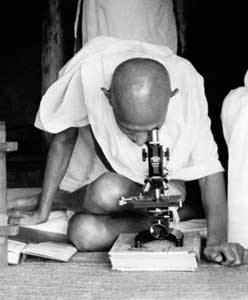snapshots of the VA
For two weeks, I'm on nightfloat at a Veteran's Administration hospital, a dark quiet place at night.
***
There's a big photo of the president at the entrance. Each night as I walk in, I think, I hope that photo looks a lot different next year.
***
There's no cafeteria at night. There is a room full of vending machines. I had a 20 dollar bill and I wanted a Coke Zero. In a quiet hour, I walked down to the emergency department and asked the clerk if there was a cashier anywhere who took payments at night, so I could get change. He sent me to the security desk, staffed by a VA police officer who told me that there was no cashier anywhere, and no change machine he could think of. I thanked him, and started to turn to walk away.
"But there's a stamp machine," he said; "You could buy a stamp and it'll give you change. It'll be all coins though."
"That's brilliant!" I said. A minute later I was the proud owner of a few US flag stamps, and seventeen one-dollar coins, sixteen of which had the picture of Sacajawea and her baby, and one of which had Susan B. Anthony. I filled my scrubs shirt pocket with them.
***
Near the physical therapy section, across from an office of the Disabled Veterans of America, there is a xerox copy of an article on a bulletin board commemorating the passage of the Americans With Disabilities Act. In a nearby hallway, there is a sentimental print of a painting of a man in a wheelchair, seen from the back, with each of his strong arms extending out to the hands of his children, his son on one side and daughter on the other. I say sentimental because of the style, a style of illustration that is seen on sentimental family portraits of all kinds; on the other hand, among the kitsch and sentiment of all the other hospital art I have seen, I have never seen this picture before.
***
At night, there are tasks that the nightfloat intern does that are done for us at the larger hospitals. For instance, I draw blood overnight, and take it down to the lab for processing.
Recently I went down to the lab in the middle of the night, around the corner from the darkened entrance to the building. In the waiting room just inside the entrance, a TV was playing Law and Order reruns to a dark lobby full of empty chairs. The lab itself, hidden behind a couple of turned corners, is a big brightly-lit room full of equpiment, which would be loud and busy by day, but is all quiet in the middle of the night. One technician was on duty, a friendly man who looked not too far from being eligible for his federal pension, and when I walked into the room, he was looking at a computer screen showing an internet page that said in big letters, "When You Will Die": an internet death clock.
***
In a back control room in the radiology department, there's a picture posted up, with a headline above it: "The terrorists have won the toss, and they have chosen to receive." The picture (of course) is of a huge bomber photographed from above with its potential payload of bombs and missiles lined up impressively on the tarmac in front of it.
***
We have a patient getting a scan, for which the nurse and I need to roll him down to radiology because it's the middle of the night. As we are in the control room, the tech says one or two things about the patient that are not too terrible, but not entirely kind. But after the study is done, as we transfer the patient back onto his bed, and start wheeling it out of the room, the tech looks down at the patient and says with evident sincerity, "I hope you feel better soon. Thank you for your service."
***
There is a whole sub-genre of New England VA patients, large men with large unruly beards. They live in Maine or New Hampshire in the woods or some back corner of a town, maybe in some shack or trailer, maybe just in their cars.
Without betraying the confidence of any one of these patients, let me just say that as I leave hospital rooms at night after being called to evaluate another such man, it is not infrequently that I recall the state slogan of New Hampshire, emblazoned proudly on every license plate, including cars used as homes by large veterans with unruly beards and worsening medical problems:
"Live Free or Die."




